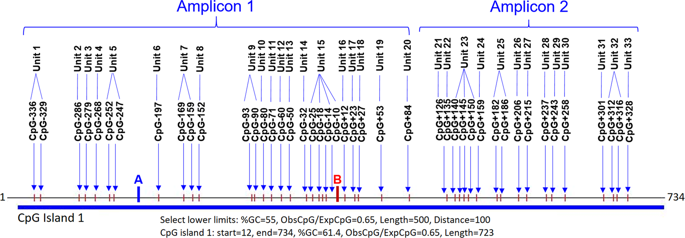当前位置:
X-MOL 学术
›
Pharmacogenomics J.
›
论文详情
Our official English website, www.x-mol.net, welcomes your feedback! (Note: you will need to create a separate account there.)
An analysis of the effect of mu-opioid receptor gene (OPRM1) promoter region DNA methylation on the response of naltrexone treatment of alcohol dependence.
The Pharmacogenomics Journal ( IF 2.8 ) Pub Date : 2020-02-07 , DOI: 10.1038/s41397-020-0158-1 Yufei Lin 1 , Henry R Kranzler 2 , Lindsay A Farrer 3 , Hongqin Xu 4 , David C Henderson 1 , Huiping Zhang 1, 3
The Pharmacogenomics Journal ( IF 2.8 ) Pub Date : 2020-02-07 , DOI: 10.1038/s41397-020-0158-1 Yufei Lin 1 , Henry R Kranzler 2 , Lindsay A Farrer 3 , Hongqin Xu 4 , David C Henderson 1 , Huiping Zhang 1, 3
Affiliation

|
This study explored the effect of OPRM1 promoter region DNA methylation on the outcome of treatment with the opioid antagonist naltrexone (NTX) for alcohol dependence (AD). Ninety-three patients with DSM-IV AD [41 African Americans (AAs) and 52 European Americans (EAs)] received double-blind treatment with NTX or placebo for at least three months. Relapse to heavy drinking was assessed during the first 13 weeks of the trial. Peripheral blood methylation levels of 33 CpG units in the OPRM1 promoter region were quantified using Sequenom EpiTYPER technology. Bayesian logistic regression was used to analyze the effects of NTX treatment, CpG methylation, CpG methylation × NTX treatment, and age on AD relapse. The Random Forest machine learning algorithm was applied to select AD relapse predictors. No significant effect of individual OPRM1 promoter CpG units on AD relapse was observed in either AAs or EAs. Age was significantly associated with AD relapse in EAs, among whom older subjects had a lower relapse rate. Random forest analyses revealed that the prediction rate for AD relapse reached 66.0% with five top variables (age and four CpG units; ranked by their importance to AD relapse) in the prediction model. These findings suggest that methylation levels of individual OPRM1 promoter CpG units do not contribute significantly to inter-individual variation in NTX response. However, the age of subjects in combination with a cluster of specific OPRM1 promoter CpG units may affect NTX treatment outcome. Additional studies of OPRM1 DNA methylation changes during and after NTX treatment of AD are needed.
中文翻译:

阿片类阿片受体基因(OPRM1)启动子区域DNA甲基化对纳曲酮治疗酒精依赖反应的影响分析。
这项研究探讨了OPRM1启动子区DNA甲基化对阿片类药物纳曲酮(NTX)酒精依赖(AD)治疗结果的影响。九十三名DSM-IV AD患者[41名非洲裔美国人(AAs)和52名欧美人(EAs)]接受了NTX或安慰剂的双盲治疗至少三个月。在试验的前13周内评估了重度饮酒的复发率。使用Sequenom EpiTYPER技术对OPRM1启动子区域中33 CpG单位的外周血甲基化水平进行了定量。用贝叶斯逻辑回归分析NTX治疗,CpG甲基化,CpG甲基化×NTX治疗和年龄对AD复发的影响。应用随机森林机器学习算法选择AD复发预测因子。在AA或EA中均未观察到单个OPRM1启动子CpG单位对AD复发的显着影响。年龄与EAs的AD复发显着相关,其中老年受试者的复发率较低。随机森林分析显示,在预测模型中,具有五个最高变量(年龄和四个CpG单位;按其对AD复发的重要性排名)的AD复发预测率达到66.0%。这些发现表明,单个OPRM1启动子CpG单元的甲基化水平对NTX反应的个体间差异无明显贡献。但是,受试者的年龄与特定的OPRM1启动子CpG单元簇结合可能会影响NTX治疗的结果。NTRM治疗AD期间和之后,OPRM1 DNA甲基化变化需要进一步研究。
更新日期:2020-02-07
中文翻译:

阿片类阿片受体基因(OPRM1)启动子区域DNA甲基化对纳曲酮治疗酒精依赖反应的影响分析。
这项研究探讨了OPRM1启动子区DNA甲基化对阿片类药物纳曲酮(NTX)酒精依赖(AD)治疗结果的影响。九十三名DSM-IV AD患者[41名非洲裔美国人(AAs)和52名欧美人(EAs)]接受了NTX或安慰剂的双盲治疗至少三个月。在试验的前13周内评估了重度饮酒的复发率。使用Sequenom EpiTYPER技术对OPRM1启动子区域中33 CpG单位的外周血甲基化水平进行了定量。用贝叶斯逻辑回归分析NTX治疗,CpG甲基化,CpG甲基化×NTX治疗和年龄对AD复发的影响。应用随机森林机器学习算法选择AD复发预测因子。在AA或EA中均未观察到单个OPRM1启动子CpG单位对AD复发的显着影响。年龄与EAs的AD复发显着相关,其中老年受试者的复发率较低。随机森林分析显示,在预测模型中,具有五个最高变量(年龄和四个CpG单位;按其对AD复发的重要性排名)的AD复发预测率达到66.0%。这些发现表明,单个OPRM1启动子CpG单元的甲基化水平对NTX反应的个体间差异无明显贡献。但是,受试者的年龄与特定的OPRM1启动子CpG单元簇结合可能会影响NTX治疗的结果。NTRM治疗AD期间和之后,OPRM1 DNA甲基化变化需要进一步研究。


























 京公网安备 11010802027423号
京公网安备 11010802027423号